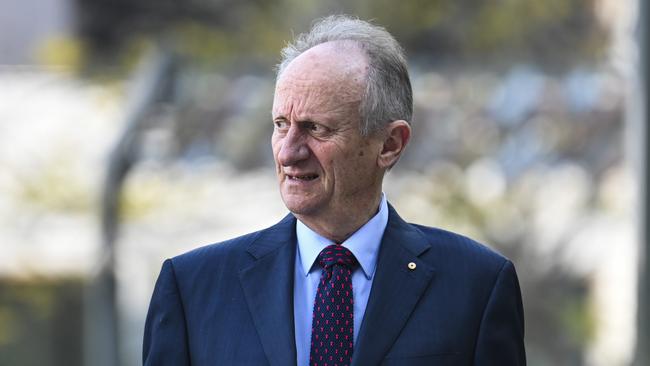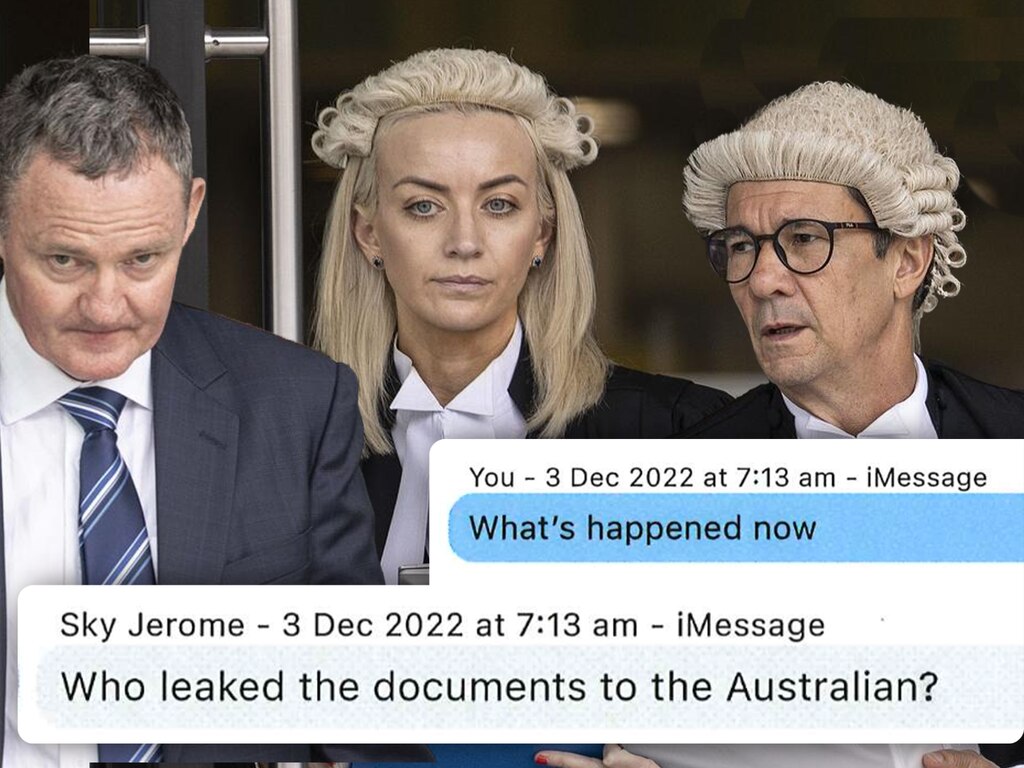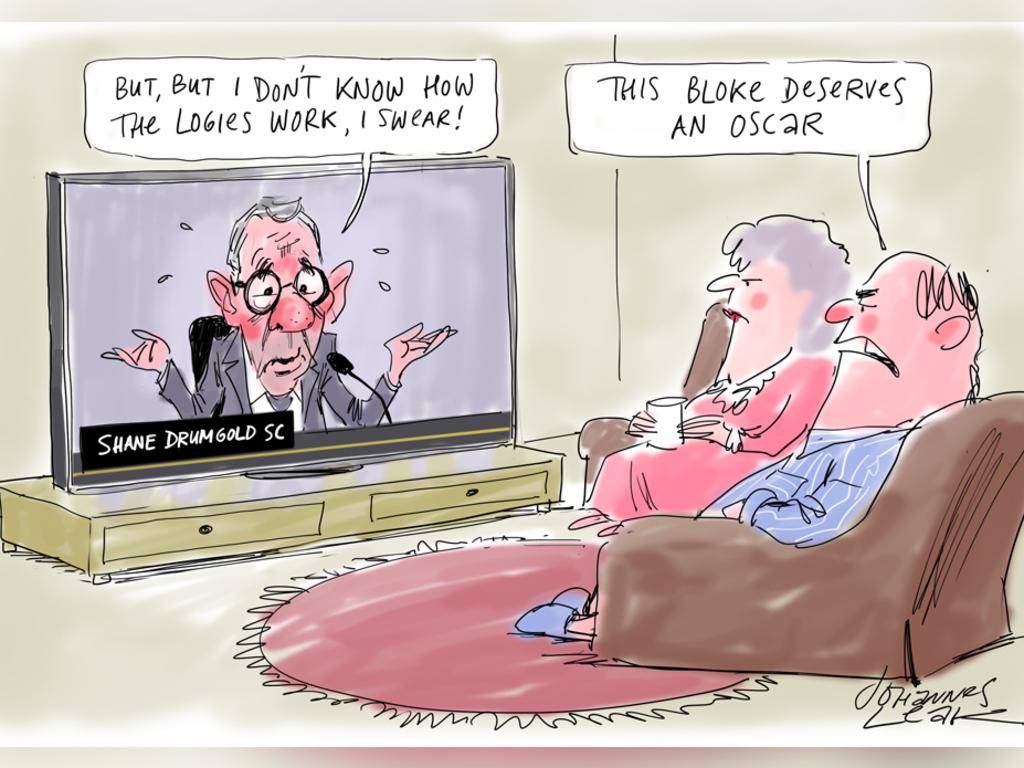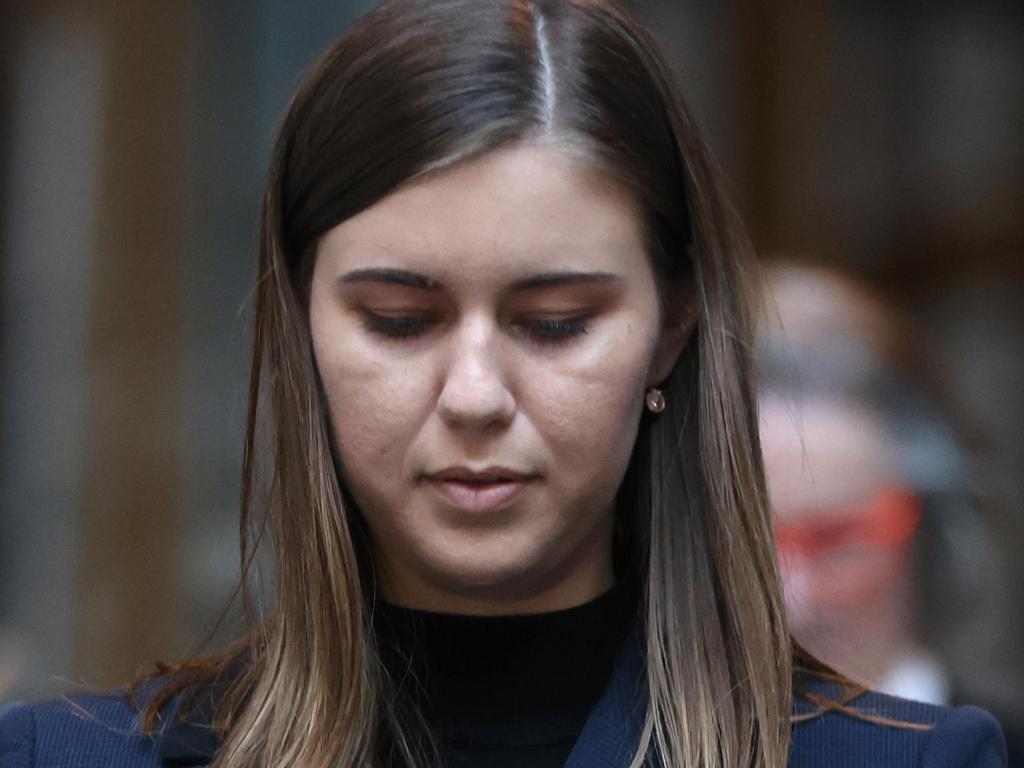
He looked like a man who had gone through the ringer.
Gone was the quietly confident, occasionally combative figure who’d risen to national prominence through his forceful prosecution of Brittany Higgins’s rape allegations against Bruce Lehrmann.
The chief prosecutor had become the chief target, struggling to answer basic questions about his handling of the case, under the spotlight of an inquiry of his own making.
The ACT Director of Public Prosecutions was forced to concede multiple misjudgments in his handling of the Lehrmann rape trial and, worse, that he had more than once “unintentionally” misled the Chief Justice presiding over the case.
Inquiry chair Walter Sofronoff KC wasn’t making any secret of his alarm at many of Drumgold’s responses, particularly on the duty of a prosecutor to disclose all relevant documents to the defence, an article of faith in the legal profession.
At one point in the first day of hearings, an exasperated Sofronoff asked: “You could not possibly, as a barrister, say, ‘I’m prepared to give an opinion about this’, without proof from the man who made the document, could you? You would need some facts. And you don’t seem to have any facts, Mr Drumgold.”
By contrast, Lehrmann’s lawyer, Steven Whybrow SC, escaped with barely a flesh wound after his two days of evidence this week, even under the caustic grilling of former NSW senior crown prosecutor Mark Tedeschi KC, acting for Drumgold.
It may not have been Tedeschi’s most successful outing but it’s probably the first time an ex-senior prosecutor has cross-examined an ex-prosecutor over alleged misconduct of a current chief prosecutor.
To be fair, Tedeschi was a little hamstrung.
Whybrow isn’t under investigation here, and Sofronoff disallowed several questions from Tedeschi that tried to draw out his views on whether police were justified in their concerns about charging Lehrmann.
As it turned out, that isn’t even going to be an issue.
On Tuesday, Sofronoff invited anyone in the room full of lawyers – including counsel assisting, Erin Longbottom KC, and those acting for the police – to submit that Drumgold was not entitled to bring the prosecution against Lehrmann, or that he should not have pursued a retrial.
No one raised their hand.
Battlelines have been drawn.
When Sofronoff hears from police witnesses next week, after a break in proceedings, Tedeschi will seek to reframe the inquiry around what, on Tuesday, he labelled the “bizarre” behaviour of police, a description that was immediately challenged by Katherine Richardson SC, acting for the Australian Federal Police.
Sofronoff upheld the objection, scolding Tedeschi that “every emotive word … spoken in this hearing room is of interest as a hook for a story” by the media.
Tedeschi’s barely suppressed smile suggested he didn’t need to be reminded.
“I’d be grateful if you reserved your advocacy until the end,” Sofronoff advised him.
That’s unlikely. The high-profile Tedeschi will use every opportunity to make his point next week when it’s the police in the hot seat.
Sofronoff will be more inclined to let him off his leash.
The conduct of the cops, unlike that of Whybrow, is squarely within his terms of reference.
Whether it can make up for the humiliating blows inflicted on Drumgold last week is a different matter.
And unfortunately for the DPP, he’s almost certain to face another round of cross-examination when the police have had their turn.








It was difficult not to feel some sympathy for Shane Drumgold after his five days on the witness stand, which came to a merciful end last Friday.